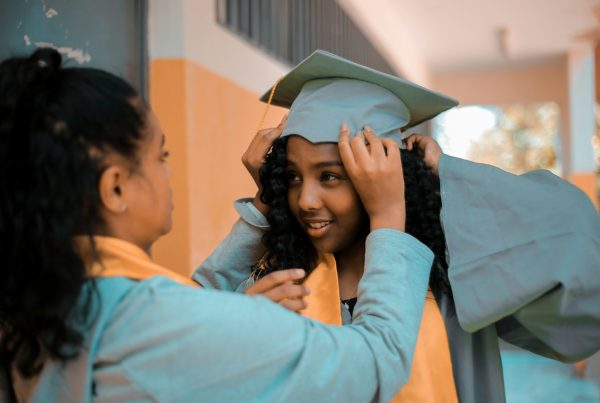College is certainly a time for exploring one’s interests, passions, and curiosities.
As students begin navigating both known and unknown academic majors and minors, while continuing to picture their future career(s)—and how to get there—it will be important they seize opportunities that actively link their academic and emerging professional identities.
Why does this matter?
The greater students’ clarity about the relationship between their academic major and potential career pathways, the more likely they are to persist and attain those goals (Foaud, et al., 2016; Ryken, 1990). Having greater clarity, of course, does not mean a student has finalized their decision about a major and/or career, or that they should anticipate a straight-forward route to their goals. Students’ simultaneous exploration of their academic and
career interests, however, does have the potential to maximize their overall college experience, and even possibly lessen the time it takes for them to complete their degree (Foaud, et al., 2016).
Sounds good, but now what? There are a variety of campus resources tailored to meet your student where they are! These resources are specifically designed to help students identify and articulate their strengths, sharpen their academic and career focus, and help them stitch together a host of on and off campus experiences—all with the aim of bringing the big picture into a clearer view. Several of these resources are captured below:
- Career service/career engagement offices are not just for students nearing the end of their college journey. These offices work early on with new students transitioning into college by offering self-assessments, personality-style surveys, leadership inventories, and other such tools that invite students to learn more about their obvious and hidden skills and talents. These offices are also helpful for students who may not know where/how to begin to explore a major or career that may be a fit.
- Academic support offices/student success centers play a vital role in not only helping students learn more about themselves and prospective academic/career pathways, but also help students develop multi-year/multi-step plans to move ideas into actions. These offices are deeply knowledgeable about different campus departments, work closely with faculty and other staff, and draw upon the expertise of career professionals to help students translate academic goals into professional pathways. Such offices are also typically the home of academic mentors or coaches—trained professional staff or advanced peer leaders who equip students to refine their skills.
- Courses such as a college 101, first year or transfer student seminar (names will vary) are designed to assist students as they learn about and successfully navigate the college environment—and do so through helping students explore their academic, emerging professional, and personal self. These courses often include an advising component that allows students to “test out” their interests without the pressure of making a full commitment to a particular academic or career pathway.
- Campus employment and work-study positions have evolved into high impact experiences where students explore their interests, make connections, and further their skill development in a particular area or need. From opportunities to build departmental websites, write for campus publications, conduct scientific experiments, manage events, or run a campus business, these experiences intersect students’ in-class learning with hands-on practice. Most importantly, these experiences unfold under the guidance of supervisor-mentors that are committed to students’ overall success during and beyond college.
While this list is far from exhaustive, the campus environment is rich with opportunities for students to explore and connect their academic and career curiosities, expand their perspectives, and begin to experience the realities associated with their interests. Although students will be empowered to own and shape their pathways, they are certainly not alone on their journey!
References
Foaud, N.A., Ghosh, A., Chang, W., Figueiredo, C., & Bachhuber, T. (2016). Career exploration among college students. Journal of College Student Development, 57(4), 460-464.
Rayman, J.R. (1990). Career services imperatives for the next millennium. The Career Development Quarterly, 48, 175-184.
FGN-2961203PR-Y0624W









